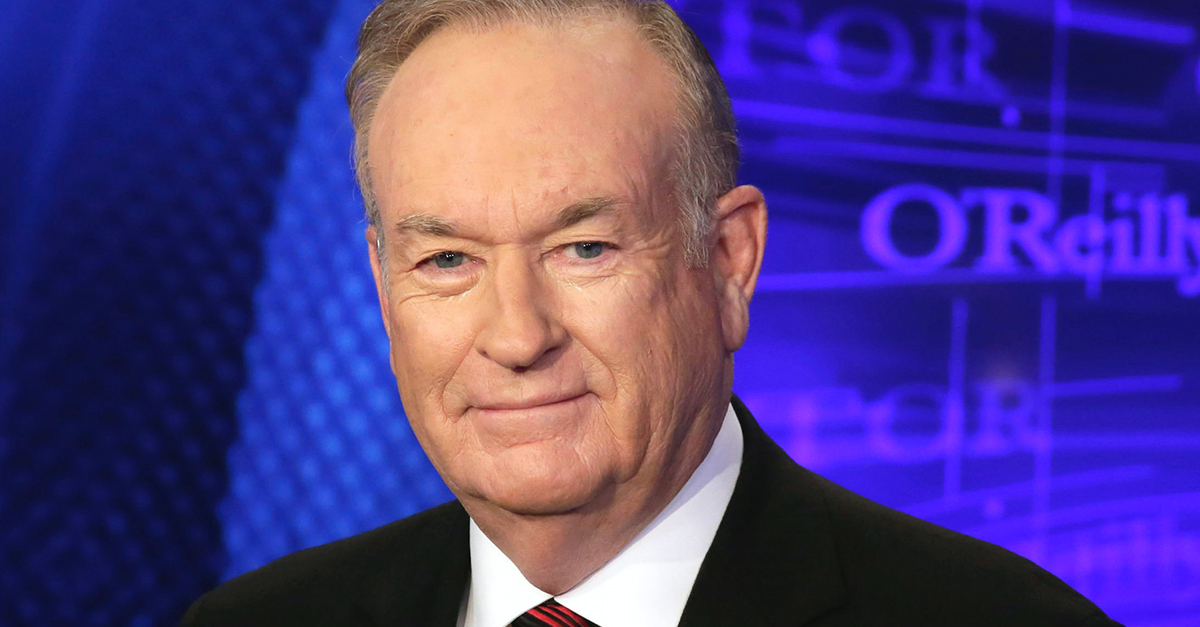“F**k it, we’ll do it live!”
Videos by Rare
Bill O’Reilly’s iconic moment as a peeved host of “Inside Edition,” mixed with his more recent habit of dominating the ratings at Fox News, seem unusual in Europe. Here, TV, especially shows about politics and culture, attempts to maintain a facade of earnestness. Apart from the UK’s “Prime Minister’s Questions,” the weekly shouty session of witty jokes and sassy remarks between the government and the opposition, European politics is usually something you skip on the channels. Even diehard fans of the spotlight are unable to avoid yawning at the banality of political “entertainment.”
The reason for this is simple: many stations are publicly owned, and those that aren’t still tend to remain apolitical. In Germany, privately owned TV stations have only existed since 1984, with state-owned channels ARD and ZDF covering almost the entirety of political news broadcasting. Public stations make up 45 percent of the market there. In France, among the top five stations, two (23.1 percent of the market share) are owned publicly, while three (34.5 percent of the market share) are in private hands. The République simultaneously spends over €260 million (in 2015) on press subsidies for newspapers and radio stations. In the United Kingdom, the state-owned BBC continuously gets a third of the country’s viewership, and is thereby, the largest channel on the British Isles.
RELATED: On 4/20, let’s remember a bunch of stupid things Bill O’Reilly has said about marijuana
The result is an absence of catchy jingles, breaking news interruptions and comedic late night shows that address political subjects. But beyond just boredom, there are far more unsettling consequences to public ownership of mainstream broadcasters.
With public ownership, the stations lose their independence when it comes to critically analyzing a government’s policies. Not convinced? Imagine yourself watching a documentary about Silvio Berlusconi on a channel owned by Silvio Berlusconi (which, if you’re in Italy, is not that unlikely). Elected officials hold influence over TV channels via their administration or the financing thereof. In Central and Eastern Europe, this is even more apparent. In the Czech Republic, the minister of finance Andrej Babiš personally owns two newspapers, a TV station, and the most popular radio station in the country.
Someone with O’Reilly’s viewership in Europe would likely be very familiar with the political personnel, as he’d either be one of their business partners or have been appointed to his position by a minister of culture or media relations (both departments are very recurrent in Europe).
Ironically, the argument for public broadcasters was that they would ensure the independence of media outlets and civilize public discourse. In a way they have, in that private companies are now needed as a counterbalance to the influence of public media. Publicly owned stations like the BBC are rife with controversies. They also offer very high-paying jobs: in France there was public outrage after the CEO of the state-owned “France Télévisions” was found to make €322,000 a year, with almost 200 other high-ranking employees cashing in over €120,000 a year at the taxpayers’ expense.
The European O’Reilly, in the absence of a conviction for sexual harassment, would likely profit from the protections of his state-owned media outlet or those afforded by his status as a government employee. If Donald Trump were in charge of large-scale media run by the government, his dear friend O’Reilly would benefit from his personal sympathies. In other words: you’re not fired.
RELATED: Rare Review: Bill O’Reilly’s 1998 crime fiction novel “Those Who Trespass”
However, in the aggressive free market that is the U.S. media landscape, companies eventually come to consider personalities like O’Reilly as liabilities and quickly respond to public indignation and pressure.
That’s not to say that American media outlets are without fault just because they act in a free market: a news cycle that relies on ad revenue has many flaws. However, we need to look at the incredible power bundled with the enormous funds and conflicts of interest that characterize public broadcasting and ask ourselves if that’s the right way to disseminate the news, especially in the age of Trump.
Maybe private media isn’t so bad after all.



